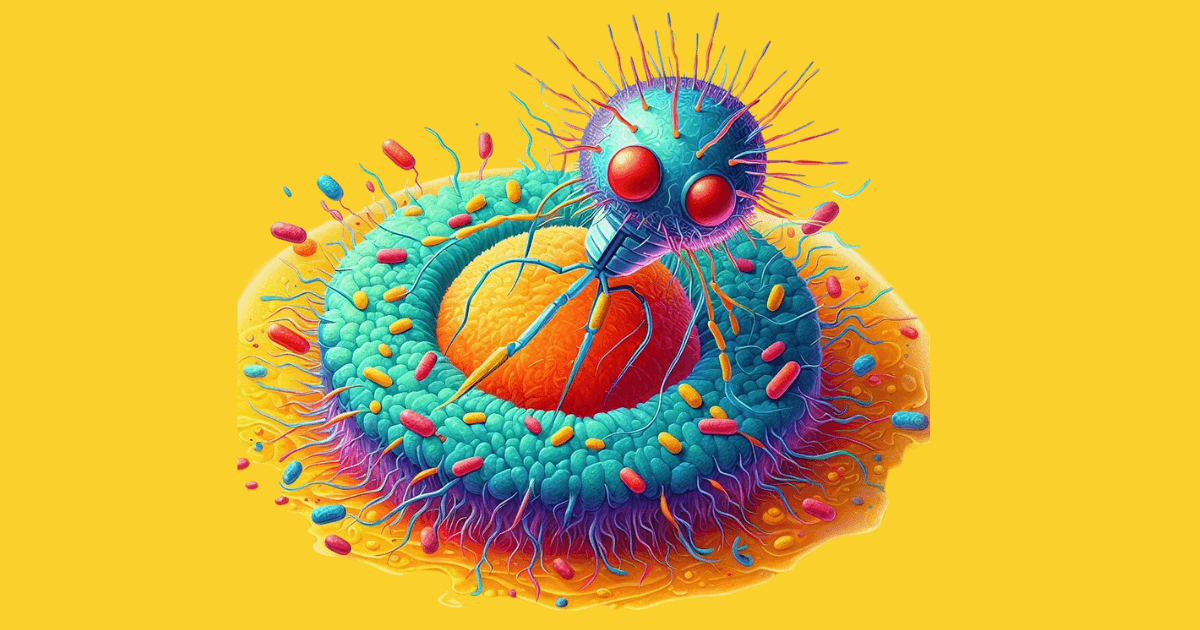Using Phage Therapy to Conquer Superbugs in The Age of Antibiotic Resistance
The rise of antibiotic-resistant bacteria, known as superbugs, poses a significant threat to global health. With traditional antibiotics becoming less effective, researchers are exploring alternative treatments. One promising solution is phage therapy, which uses bacteria—viruses that infect and kill bacteria—to combat these resistant strains.[6] Phage therapy has shown effectiveness in treating infections caused by multidrug-resistant bacteria, offering a targeted approach that can potentially overcome the limitations of conventional antibiotics. By harnessing the natural ability of phages to target specific bacteria, this innovative treatment could pave the way for more effective management of antibiotic-resistant infections.

What are Superbugs?
Superbugs are bacteria that have developed resistance to multiple antibiotics. This resistance can occur due to overuse and misuse of antibiotics, leading to mutations that protect bacteria from the drugs designed to kill them. The World Health Organization (2021) warns that superbugs could cause 10 million deaths annually by 2050 if new treatments are not found. Common superbugs include Methicillin-resistant Staphylococcus aureus (MRSA), Clostridium difficile (C. diff), and drug-resistant tuberculosis (TB).[7]
Phage Therapy
Phage therapy involves using bacteriophages or phages, which are viruses that specifically target and destroy bacteria. Phages attach to bacterial cells, inject their genetic material, and replicate inside, eventually causing the bacteria to burst and die. Unlike antibiotics, phages are highly specific, targeting only the harmful bacteria and leaving beneficial bacteria unharmed [4] . This specificity reduces the risk of disrupting the body's natural microbiome, which is crucial for maintaining overall health.
Advantages of Phage Therapy
- Selectivity: Phages target specific bacteria, preserving the beneficial microbiome.
- Reduced Resistance: Bacteria are less likely to develop resistance to phages compared to antibiotics.[2] Phages can evolve alongside bacteria, maintaining their effectiveness.
- Personalized Treatment: Phages can be tailored to individual infections, offering a customized approach.[3] This precision medicine approach ensures that each patient receives the most effective treatment for their specific bacterial infection.
- Minimal Side Effects: Since phages target specific bacteria, they cause fewer side effects compared to broad-spectrum antibiotics, which can indiscriminately kill both harmful and beneficial bacteria.

Challenges and Considerations
- Regulatory Hurdles: Phage therapy faces significant regulatory challenges as it differs from traditional drug development. Regulatory agencies, such as the FDA, require extensive clinical trials to ensure safety and efficacy. [4]
- Potential Side Effects: While generally considered safe, there are potential side effects, and more clinical trials are needed to fully understand the implications.[5]
- Complexity: Developing and administering phage therapy requires specialized knowledge and skills. Phages must be carefully selected and produced, which can be time-consuming and costly.[4]
- Public Awareness: There is a need for increased public awareness and acceptance of phage therapy. Educating both healthcare professionals and patients about the benefits and limitations of phage therapy is crucial for its adoption.
Current Research and Considerations
Recent advancements have shown promising results in phage therapy. For instance, a study by Schooley et al. (2017) demonstrated the successful use of phage therapy to treat a patient with a multidrug-resistant bacterial infection. Another notable success story is the case of a 15-year-old cystic fibrosis patient in the UK who was treated with phages for a Mycobacterium abscessus infection, leading to significant improvement[1] .
Ongoing research continues to explore the full potential of phage therapy in treating superbug infections. Researchers are also investigating the combination of phage therapy with traditional antibiotics to enhance treatment efficacy.
The Future of Phage Therapy
Phage therapy has the potential to complement or replace traditional antibiotics, especially for infections caused by antibiotic-resistant bacteria. Continued research and investment are crucial to overcome the current challenges and bring this promising treatment into mainstream healthcare [4] . Collaborations between academic institutions, biotech companies, and government agencies can accelerate the development and approval of phage therapy.
Superbugs represent a significant threat to global health, but phage therapy offers a new hope in the fight against antibiotic resistance. By leveraging the natural enemy of bacteria, phage therapy could revolutionize the way we treat bacterial infections, ensuring a healthier future. As the medical community continues to explore and refine this innovative approach, the potential for phage therapy to save lives and restore health becomes increasingly evident.
Be Your Healthiest!













